The Pope to deacons: Be apostles of forgiveness, selfless servants of the brothers and builders of communion
Homily Jubilee of the deacons
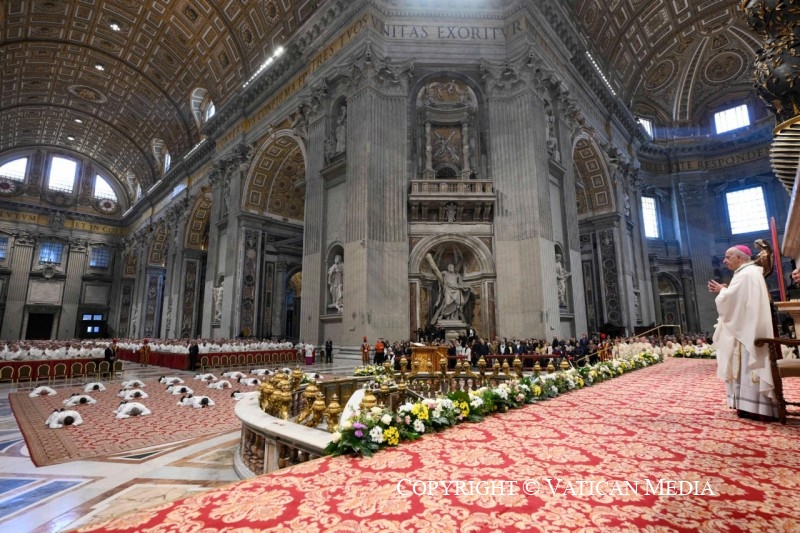
At 9 o’clock this morning, Seventh Sunday of Ordinary Time, on the occasion of the Jubilee of the Deacons, His Excellency Msgr. Rino Fisichella, Pro-Prefect of the Dicastery for Evangelization, Section for the Fundamental Questions of Evangelization in the World, presided over the Holy Mass in the Vatican Basilica.
During the celebration, twenty-three deacons received the sacrament of Holy Orders
Below we’d like to publish the text of the homily prepared by the Holy Father, read by His Excellency Msgr. Rino Fisichella:
***
Homily of the Holy Father
The message of today’s readings can be summed up in a single word: “gratuity”. That is surely a word dear to you as deacons, gathered here for the Jubilee celebration. So, let us reflect on three specific aspects of this fundamental dimension of the Christian life in general and your ministry in particular: forgiveness, selfless service and communion.
First: forgiveness. The proclamation of forgiveness is an essential part of your ministry as deacons. Indeed, forgiveness is an indispensable element of every ecclesial vocation and a requirement of every human relationship. Jesus points to its necessity and importance when he says, “Love your enemies” (Lk 6:27). This is certainly true: if we are to grow together and to share in one another’s strengths and weaknesses, achievements and failures, we need to be able to forgive and to ask forgiveness, to rebuild relationships and even to choose not to withhold our love from those who hurt or betray us. A world that feels nothing but hatred towards its adversaries is a world without hope and without a future, doomed to endless war, divisions and vendettas. Sadly, this is what we are witnessing today, on many different levels and in all parts of the world. Forgiveness means preparing a welcoming and safe future for us and our communities. Deacons, personally charged with a ministry that carries them to the peripheries of our world, are committed to seeing – and teaching others to see – in everyone, even in those who do us wrong and cause us suffering, a hurting sister or brother, and hence one in greater need than anyone of reconciliation, guidance and help.
Today’s first reading speaks of this openness of heart, presenting us with David’s loyal and selfless love for Saul, his king but also his persecutor (cf. 1 Sam 26:2, 7-9, 12-13, 22-23). We see this again in the exemplary death of the deacon Stephen, who forgives those who are stoning him (cf. Acts 7:60). Above all, we find it exemplified in Jesus, the model of all diakonia, who, in “emptying” himself to the point of giving his life for us on the cross (cf. Phil 2:7), prays for those who crucify him and opens the gates of Paradise to the good thief (cf. Lk 23:34, 43).
This brings us to the second point: selfless service. The Lord describes it in the Gospel in words that are simple and clear: “Do good and lend, expecting nothing in return” (Lk 6:35). A phrase that is brief, yet evokes the beauty of friendship. First, God’s friendship towards us, but also our own friendship. For you as deacons, selfless service is not a secondary aspect of your activity, but an essential dimension of your very being. Indeed, through your ministry, you devote yourselves to being “sculptors” and “painters” of the merciful face of the Father, and witnesses to the mystery of the Triune God.
In many Gospel passages, Jesus speaks of himself in this light. He does so with Philip, in the Upper Room, when, shortly after washing the feet of the Twelve, he says: “Whoever has seen me has seen the Father” (Jn 14:9). And again, when he institutes the Eucharist, he says: “I am among you as one who serves” (Lk 22:27). Yet even earlier, on the way to Jerusalem, when his disciples had argued among themselves about who was the greatest, he had explained that “the Son of Man came not to be served but to serve, and to give his life a ransom for many” (cf. Mk 10:45).
Brother deacons, the “gratuitous” work you carry out as an expression of your consecration to the charity of Christ thus becomes your primary proclamation of God’s word, a source of confidence and joy for those who encounter you. As often as possible, perform it with a smile, without complaining and without seeking recognition, supporting one another, also in your relationships with bishops and priests, “as the expression of a Church committed to growing in the service of the Kingdom by appreciating all the grades of the ordained ministry” (Italian Episcopal Conference, Permanent Deacons in the Church in Italy. Guidelines and Norms, 1993, 55). Through your cooperation and generosity, you will be a bridge linking the altar to the street and the Eucharist to people’s daily lives. Charity will be your most beautiful liturgy and the liturgy your humblest service.
Now, we come to the final point: gratuity as a source of communion. Giving and expecting nothing in return unites; it creates bonds because it expresses and nurtures a togetherness that has no other aim but the gift of self and the good of others. Saint Lawrence, your patron, when asked by his accusers to hand over the treasures of the Church, showed them the poor and said: “These are our treasures!” That is how communion is built: by telling your brothers and sisters by your words but above all by your actions, both individually and as a community: “You are important to us;” “We love you;” “We want you to be part of our journey and our life.” This is precisely what you do. Those of you who are permanent deacons do so as husbands, fathers and grandparents who, by your service, choose to extend your families to include the needy in all the places where you live.
Dear deacons, your mission sets you apart from society only to be re-immersed in it in order to enable it to be an ever more open and welcoming place for everyone. It is one of the finest expressions of a synodal Church, one that “goes forth.”
Soon some of you, in receiving the sacrament of Holy Orders, will “descend” the steps of the ministry. I deliberately say “descend,” and not “ascend,” because being ordained is not an ascent but a descent, whereby we make ourselves small. We lower ourselves and divest ourselves. In the words of Saint Paul, through service, we leave behind the “earthly man,” and put on, in charity, the “man of heaven” (cf. 1 Cor 15:45-49).
Let us all reflect on what we are about to do, even as we entrust ourselves to the Virgin Mary, the handmaid of the Lord, and to Saint Lawrence, your patron. May they help us to experience every expression of our ministry with a humble and loving heart, and to be, in “gratuity,” apostles of forgiveness, selfless servants of our brothers and sisters, and builders of communion.
Related
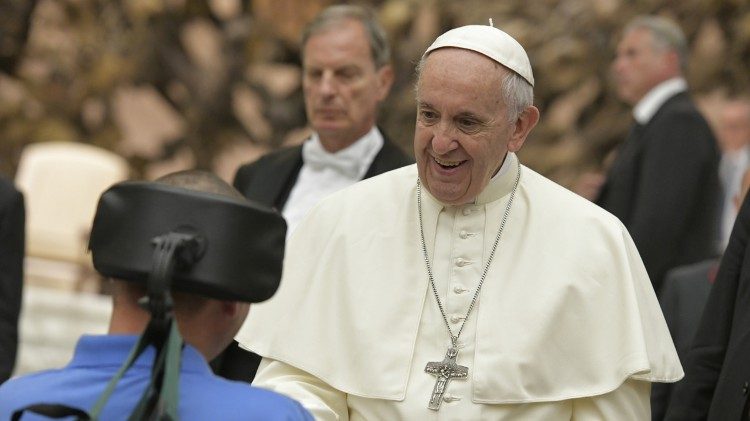
Francis. The Human and Religious Imprint of a Papacy
Isabel Orellana
24 April, 2025
5 min
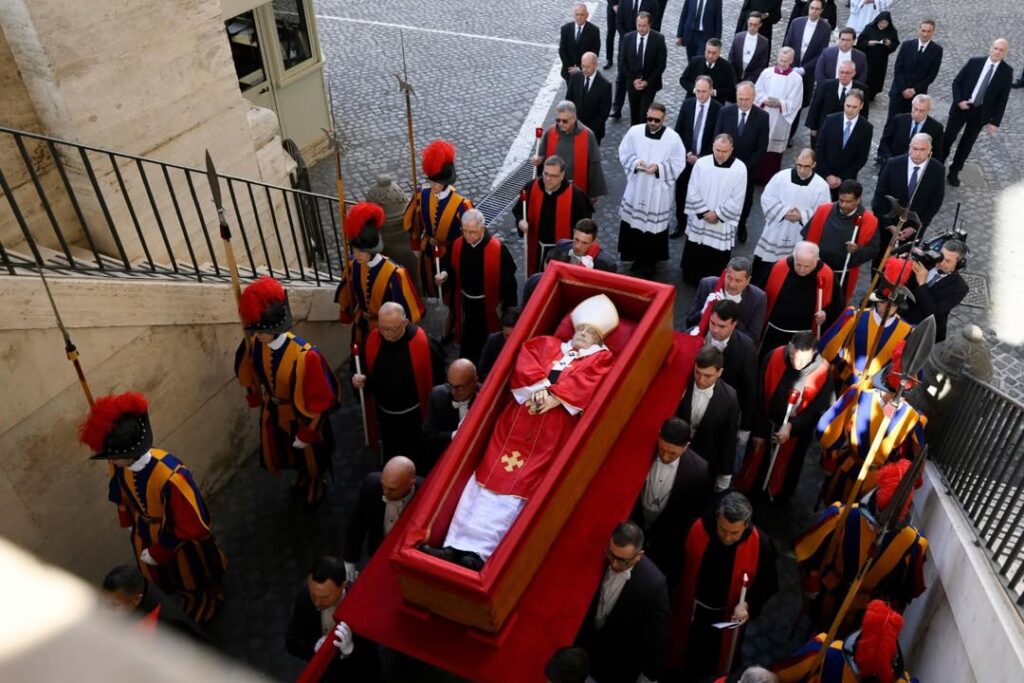
A Pope’s Last Journey: Francis’ Body Transferred to St. Peter’s
Exaudi Staff
24 April, 2025
3 min
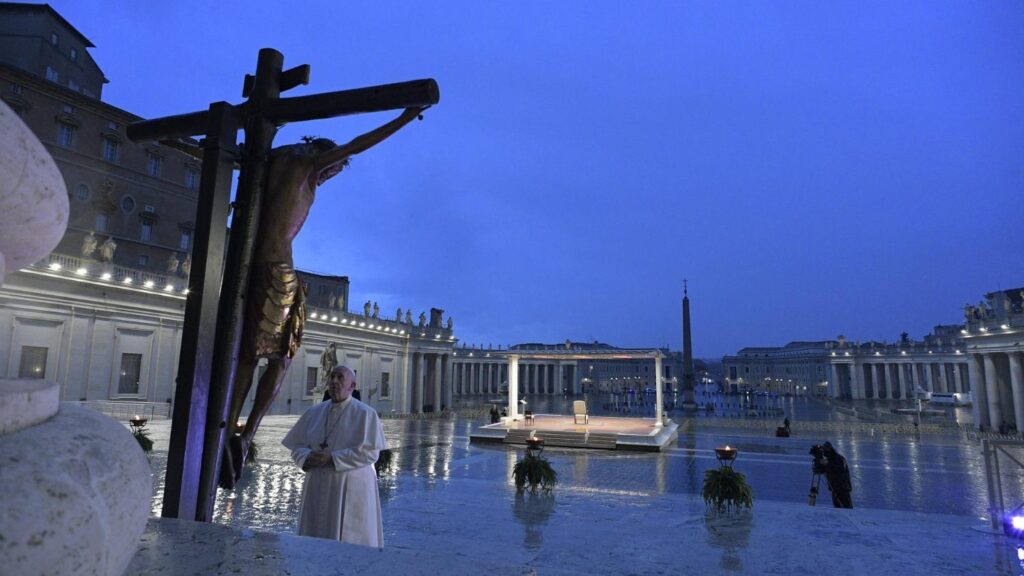
Cardinal Felipe Arizmendi: With the Risen Christ, There Is Hope
Felipe Arizmendi
24 April, 2025
6 min
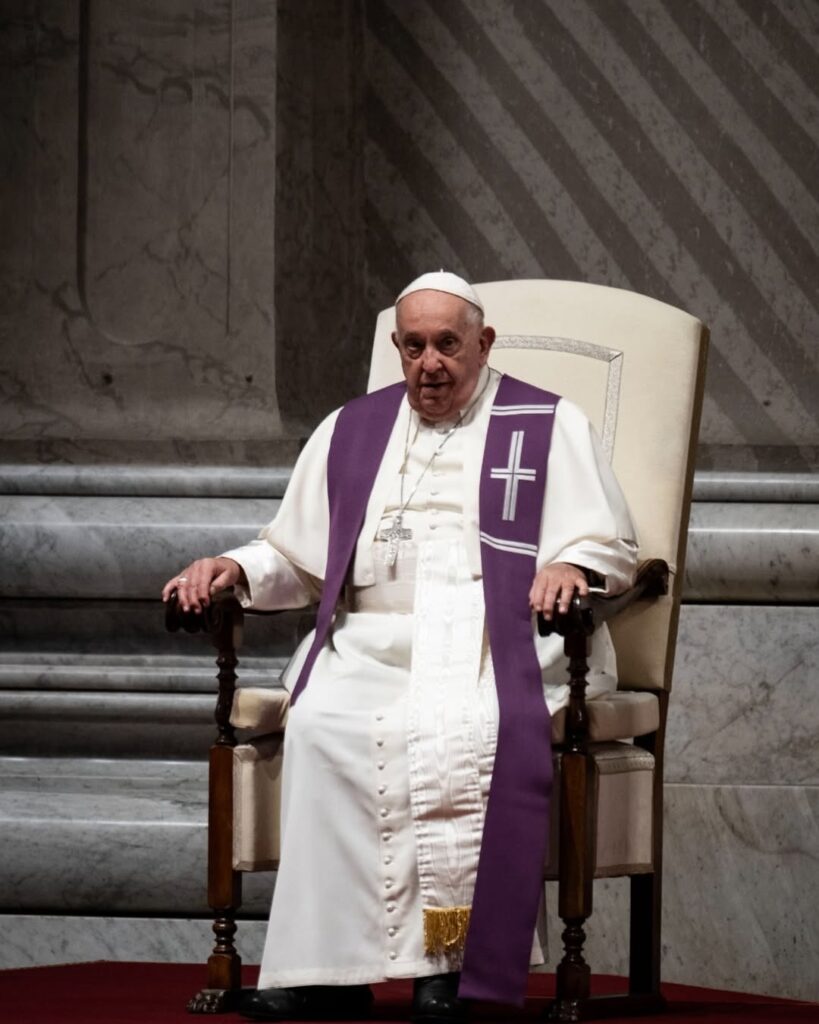
You Didn’t Give Up
Exaudi Staff
23 April, 2025
2 min
 (EN)
(EN)
 (ES)
(ES)
 (IT)
(IT)

